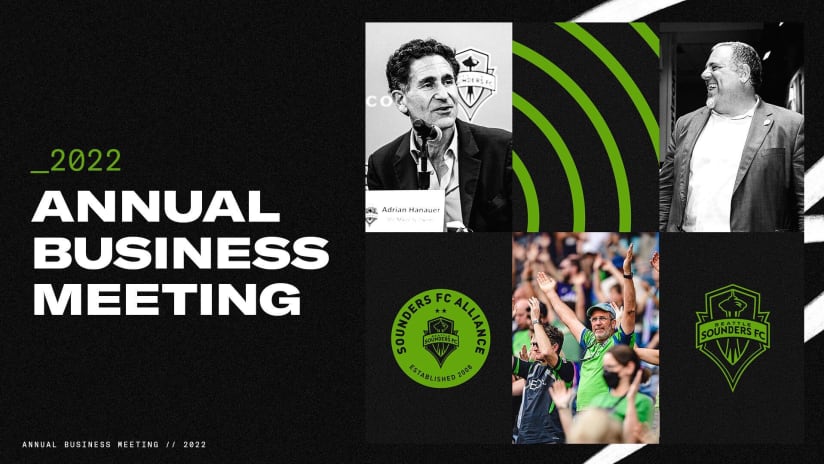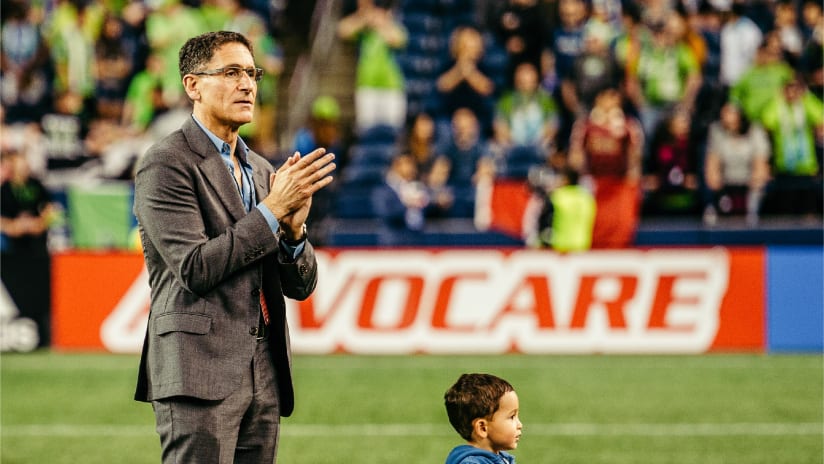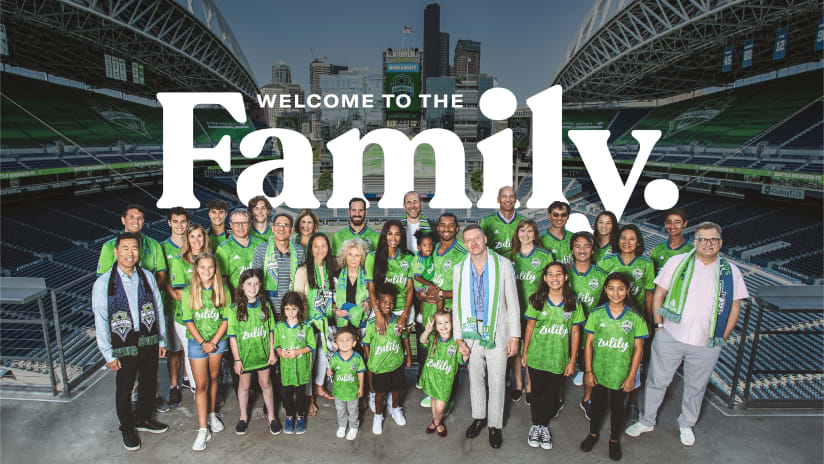On our most recent trip abroad we watched a lot of games with the first few days of the trip feeling a bit more like vacation than like work!
In his initial blog about his travel to Europe and Ghana this spring, Sounders FC general manager Adrian Hanauer focused on two of the trip’s themes: making contacts and research toward building a player development program. This two-part entry deals with what fans would consider (and Adrian too, for that matter) the more fun side: attending matches.
On our most recent trip abroad we watched a lot of games with the first few days of the trip feeling a bit more like vacation than like work!
We started by flying into Amsterdam and then connecting to Manchester. That night, Chris (Henderson, technical director) and I went to the Manchester United-Barcelona game, the second leg of their Champions League semifinal. There at Old Trafford, from the director’s box no less, we witnessed that great atmosphere, the brilliance of Messi and the amazing goal by Scholes.
Around us were lots of big name coaches, executives and players not in uniform. In fact, I was seated next to Nemanja Vidic. I had to fight every instinct in me to not hand him my business card and invite him on a sightseeing tour of Seattle!
The next morning we jumped on a train to London. I’m not sure if this is true, but we were told we got the last two tickets at Stamford Bridge for the Chelsea-Liverpool semifinal. Not the director’s box this time; the last row in one of the corners.
Certainly the first part of our trip sounds pretty good, and it was. These games are definitely a fringe benefit of the job!
Watching matches of that caliber was fun, however the next game we saw was stressful. After some meetings, we took a train up to Nottingham. We were there to see Cambridge United play at Burton Albion in the semifinal playoffs, away leg.
I say there was stress because I’m a partial owner of Cambridge United, and this was the biggest match for the club in probably 15 years. I’m more stressed for Sounders games back home, and I know there will be even more tension in MLS next season. Still, there in Burton, there was a knot in my stomach, especially when Cambridge went 2-nil down.
I may be biased, but I believe the energy level of the fans at these level playoff games is every bit as highly-charged as those Champions League games. These smaller clubs have their rabid fans, and we had 1,400 traveling from Cambridge to Burton. In fact, they made more noise than the 4,500 home fans.
I love the atmosphere of these games, when you have 6,000-7,000 fans packing a stadium. Our supporters were singing the whole match and really gave our guys a lift late. That’s probably why we were able to score twice in the final 12 minutes to earn the tie–a great result going back for the return leg at Cambridge.
After the match, Chris and I found ourselves out in the stadium parking lot looking for a cab back to the train station. No luck. So we began asking people–Burton fans, mind you–for assistance. This one man did more than that. He offered to give us a ride.
He could see we were Cambridge fans, although he had no idea I was one of the directors. So once we were in the car, he started joking that he may just decide to leave us in the middle of nowhere. Chris and I looked at each other, wondering whether we should have waited a little longer for a cab. But the guy was just teasing. It all turned out fine, and he got us to the train on time.
Since we had landed in England on April 28th, we had already seen three matches and had four business meetings in the first five days. Next stop, Paris.
I’m a big fan of French football, and I have some friends in the management of Paris FC, a second division club. They play in a pretty big (20,000 seats) park, but on this particular night there were not many fans and Paris FC lost, 3-1.
The relationships with the people at Paris FC are valuable ones that I want to continue. We went to the Paris FC game that night not so much to see players, but to exchange ideas. We talked about their club, what’s going on in Ligue 1, Ligue 2, The National, and their differences. We talked about the quality of play and how player exchanges might work. For me, if I can learn one tiny kernel everywhere I go, then it’s worth it.
In my mind, putting a team together is a lot more art than science. Part of it is just being out there and building these types of relationships.
If an agent has a good player, I want him to call us first. The chance of us being at a game where a player first shows promise is pretty low. We need friends, partners, scouts and agents who call us because they know we take care of our players, and that we’re successful, ethical, fair.
From Paris, we flew down to Lisbon. As part of our visit, we watched the U19 teams of Benfica and Porto play there at the Benfica training center. Mind you, they have a beautiful 5,000-seat stadium right there, and the passion of the fans is evident. It’s huge, even at this level.
This was a tournament final and Porto and Benfica are unfriendly rivals. Fans are screaming at the players, and it’s not the positive kind of screaming. It seems strange to treat 16-17 year-old players this way, but that’s football in Europe.
Next we went to Porto, not to watch a game, but we did tour the training facility. Porto won the Portuguese championship and not too many years ago, under Jose Mourinho, they won the Champions League.
Porto runs an outstanding youth system, and they continually turn out fantastic young players. They have a philosophy, a commitment to not only developing those players, but also keeping them a bit longer than the other clubs. By keeping them longer it allows them to maximize the transfer value. Porto seems to transfer players for $5-15 million almost annually.
Next week: It’s back to England for the Cambridge second leg playoff, followed by a contrast and comparison of going to games in Ghana and at Wembley.




